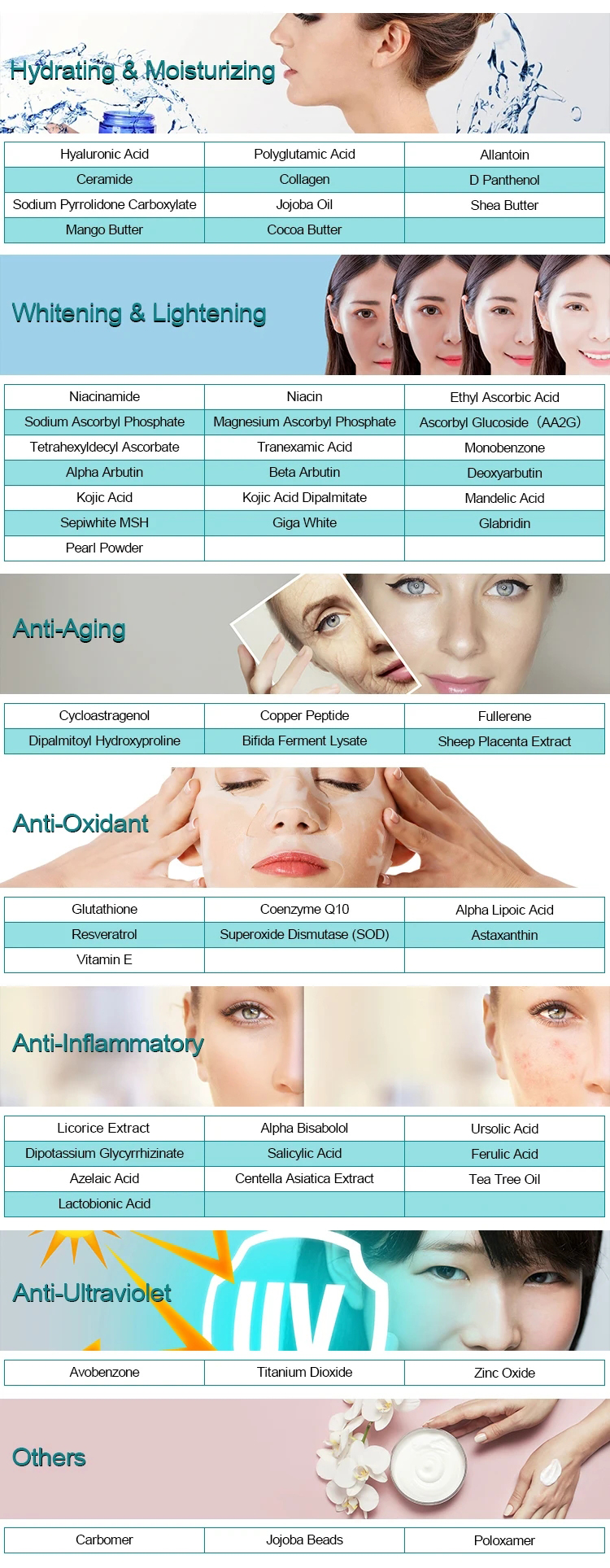Tetrahexyldecyl Ascorbate is a stable and oil-soluble form of Vitamin C, often used in skincare products. Here are some potential pros and cons associated with Tetrahexyldecyl Ascorbate:
Pros of Tetrahexyldecyl Ascorbate:
Stability: Tetrahexyldecyl Ascorbate is more stable than some other forms of Vitamin C, which can be prone to oxidation. This stability can result in a longer shelf life for skincare products.
Oil Solubility: Being oil-soluble, Tetrahexyldecyl Ascorbate can penetrate the skin’s lipid barrier more effectively, potentially leading to better absorption and efficacy compared to water-soluble forms of Vitamin C.
Antioxidant Properties: Like other forms of Vitamin C, Tetrahexyldecyl Ascorbate possesses antioxidant properties that can help protect the skin from free radical damage caused by environmental stressors such as UV rays and pollution.

Cons of Tetrahexyldecyl Ascorbate:
Skin Brightening: Tetrahexyldecyl Ascorbate is known for its ability to promote a more even skin tone and reduce hyperpigmentation, contributing to a brighter complexion.
Cost: Products containing Tetrahexyldecyl Ascorbate may be more expensive due to the cost of manufacturing this stable form of Vitamin C.
Limited Research: While there is some research supporting the benefits of Tetrahexyldecyl Ascorbate, the body of evidence may not be as extensive as that for other forms of Vitamin C like L-ascorbic acid. More research is needed to fully understand its long-term effects.
Potential Sensitivity: As with any skincare ingredient, individuals with sensitive skin may experience irritation or allergic reactions. It’s advisable to patch-test products containing Tetrahexyldecyl Ascorbate before widespread use.
Not a True Vitamin C Replacement: While it shares some properties with Vitamin C, Tetrahexyldecyl Ascorbate may not provide all the benefits associated with other forms of Vitamin C, especially L-ascorbic acid, which is considered the most researched and proven form.
It’s important to note that the effectiveness of skincare products depends on various factors, including individual skin types and the overall formulation of the product. Before incorporating any new skincare ingredient, it’s advisable to consult with a dermatologist or skincare professional, especially if you have specific skin concerns or conditions.
The effect of Tetrahexyldecyl Ascorbate
Tetrahexyldecyl Ascorbate is a stable, oil-soluble form of Vitamin C, often used in skincare products. It is believed to have several benefits for the skin, including:
Antioxidant Properties: Like other forms of Vitamin C, Tetrahexyldecyl Ascorbate is an antioxidant, which means it helps protect the skin from damage caused by free radicals. This can contribute to a reduction in the signs of aging, such as fine lines and wrinkles.

Collagen Synthesis: Vitamin C is known to stimulate collagen production, a protein that provides structure to the skin. By promoting collagen synthesis, Tetrahexyldecyl Ascorbate may contribute to skin firmness and elasticity.
Brightening Effect: Vitamin C is known for its skin-brightening properties. Tetrahexyldecyl Ascorbate may help reduce the appearance of dark spots and hyperpigmentation, leading to a more even skin tone.
Stability: One advantage of Tetrahexyldecyl Ascorbate is its stability. It is less prone to oxidation compared to other forms of Vitamin C, making it more suitable for use in skincare formulations.
Penetration: Being oil-soluble, Tetrahexyldecyl Ascorbate can penetrate the skin more effectively than water-soluble forms of Vitamin C. This may enhance its efficacy in providing benefits to the skin.
It’s important to note that individual responses to skincare ingredients can vary, and it’s advisable to patch-test products containing Tetrahexyldecyl Ascorbate to ensure compatibility with your skin. Additionally, using sunscreen is crucial when incorporating Vitamin C products into your skincare routine, as it can enhance sun protection and prevent further skin damage.
